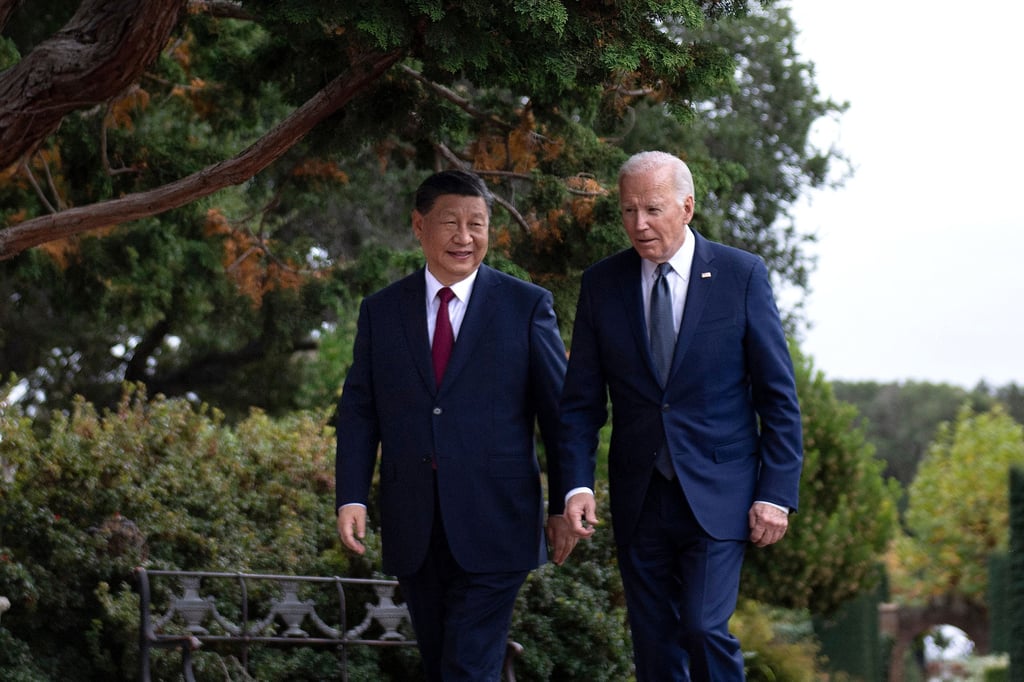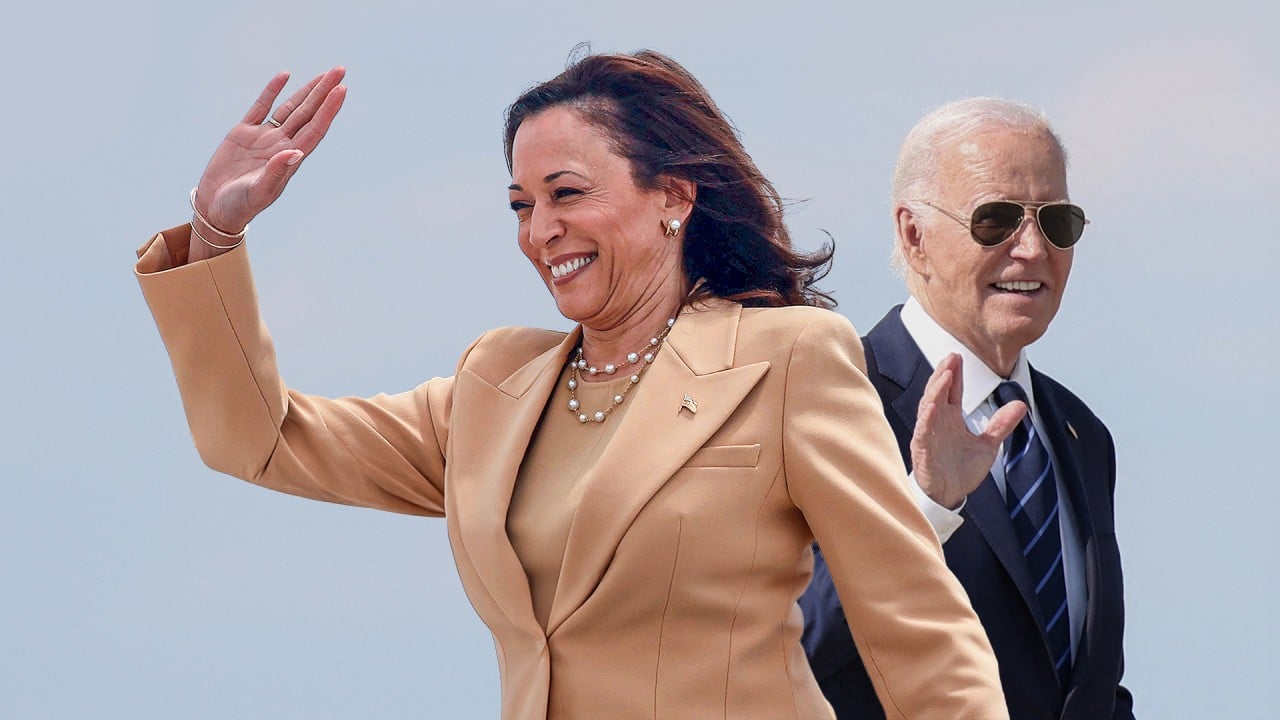Kamala Harris tipped to keep Biden’s foreign policy team in place – at least at first
Since Joe Biden announced his withdrawal from the presidential race and endorsed Harris on Sunday, a number of Democratic Party heavyweights – including former House speaker Nancy Pelosi and Hillary and Bill Clinton – have thrown their support behind her candidacy. She also raised more than US$81 million in funding within 24 hours, although Barack Obama has yet to give his endorsement.
Li, who used to head the Brookings Institution’s John L. Thornton China Centre in Washington, said Harris had an “80 or 90 per cent” chance of securing the Democratic nomination.
He predicted Harris would continue with the current policy of supporting US regional allies in the Indo-Pacific while looking to avoid further escalation with Beijing.
Harris visited the Philippines in late 2022 and has been in contact with other US partners in the region.

She has also expressed support for Taiwan and met the island’s new leader William Lai Ching-te in 2022, but Li predicted she would take a “more cautious” approach to the island and “would not support any major moves on Taiwan independence”.
The United States, in common with most countries, does not recognise Taiwan as an independent state but opposes any attempt to take the island by force and is committed to supplying it with arms to defend itself.
“I think she is likely to continue with the ‘small yard, high fence’ policy [of targeted containment] but also continue to engage with China on education and the culture domain,” Li said, adding that he expects her to keep the two countries’ militaries talking to help manage their differences in the South China Sea.
As a progressive politician, Harris is also likely to take a tough stand on issues such as human rights in Hong Kong and Xinjiang, but Li said Beijing should not take Harris’ rhetoric on China during the campaign period “too seriously”.
He does not expect any major shifts in China policy during Biden’s remaining time in the White House.
“First of all, he’s not in a position to change that much. He may still try to consolidate it a little bit but there will not be any dramatic change.
“Biden actually said very clearly … unexpected incidents are more damaging than expected things,” Li said.
Despite his prediction that Harris would initially rely on Biden’s foreign policy team, Li said she would begin to make changes a few months into her term of office.
“After she becomes president, I will see that she will start to [replace them] … because these people are all loyalists to Biden. They did not show [her] too much respect,” he said.
“Harris does not have her own team. She is very, very aggressive. She’s not a quiet person.
“In her case, maybe you can expect after a couple of years or after half a year, there will be some important changes.”
He also said she did not have strong relations with many world leaders, including Chinese President Xi Jinping.
She first met Xi at the Asia-Pacific Economic Cooperation summit in Bangkok in 2022, telling him that the US wanted to maintain “open lines of communication”.
Despite the ongoing tensions between the two countries, Xi and Biden remained in constant communication and met in person last year in San Francisco. Xi also described his US counterpart as “an old friend” during their phone calls.
“Biden’s personal background with Xi Jinping has been very solid, although people may not see that,” Li said.
“They [Biden and Xi] met four times. They talked to each other 11 times when they were vice-presidents. They even travelled together to Chengdu, to California together, so you can see they have very strong personal ties, not to mention that Donald Trump also has very strong ties with Xi Jinping.”
